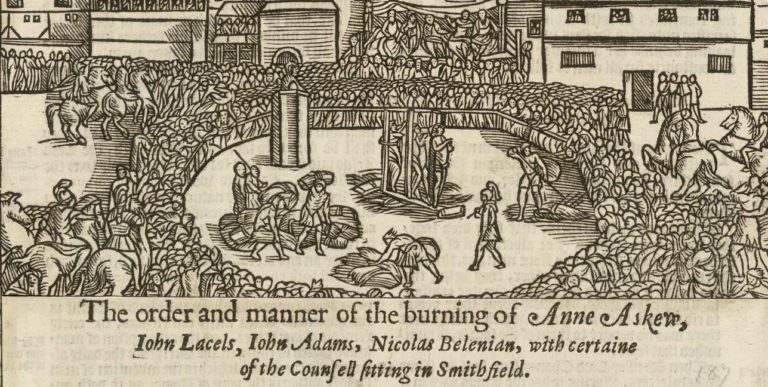
Douglas Wilson, Empires of Dirt: Secularism, Radical Islam and the Mere Christendom Alternative (Canon Press: 2016)
Our politics is broken. But that is like saying “I’m getting older.” It’s a Captain Obvious moment. Having said that, the way to fix the problem is heavily, hotly, and hopelessly disputed. Christians need to take the opportunity to equip themselves with answers about the political questions of the day and speak the truth, and in doing so we might witness to the lost and love our neighbour. But the dispute about political solutions remains. That is where a book like Douglas Wilson’s Empires of Dirt comes in.
Wilson is well known in Reformed and evangelical circles for his wit, sharp writing, and incisive (and sometimes controversial) theological and cultural insight. So, it is somewhat surprising that he hasn’t published a book on political matters up until now. But now, as already observed, is a prescient time to do so.
The basic thesis of the book is that the reigning secular order is collapsing in a heap and the twin errors of American exceptionalism (basically American civil religion, “city on a hill” nationalism) and radical Islam are waiting in the wings to step in and take over unless Christians do something about it. Wilson doesn’t hold out much expectation for the success of American exceptionalism, but he does see radical Islam as a real threat in the impending ideological vacuum. The opening chapters are taken up with these themes.
He then moves to deconstruct the main Christian political theologies which permeate evangelical and Reformed churches. His first target is Anabaptist thought, propagated most prominently by John Howard Yoder and Stanley Hauerwas, and popularised by the evangelical left. Wilson rightly points out that this framework has won the day in the Western church. We like to think of ourselves as, politically speaking, separate from the world. We like to rue the conversion of Constantine and cheer the collapse of Christendom. We are, as some say, a prophetic minority. Stay out of politics. Speak the truth to power and all that.
But Wilson asks a good question at this point: what would happen if, in speaking the truth to power (prophetically, of course), power listened? What if the king, or the entirety of Malcolm Turnbull’s cabinet, or Donald Trump, actually turned to Christ and publicly confessed him? We would be “like Jonah”, “entirely flummoxed if power listened” to us (p92). Anabaptist thought is predicated on the Church being a prophetic minority. When that scenario changes they run out of ideas. Ultimately this framework for political (dis)engagement doesn’t hold together, for this and other reasons.
Having dealt a pithy blow to the Anabaptists, Wilson turns to those closer to home: the Radical 2 Kingdom (R2K) advocates. (Confusingly, this is sometimes referred to elsewhere as “Reformed 2 Kingdoms”.) R2K thinkers want Christians to separate the kingdom of Christ in his church from the kingdoms of man outside of his church. Both are ruled, they claim, by God but in different ways. Wilson is right to point out that R2K thinkers (most prominently Michael Horton, David Vandrunen and Darryl Hart) have capitulated to the myth of secular neutrality. Christ is Lord, says Wilson, and that lordship is total. Secular neutrality is impossible, therefore R2K theology doesn’t work.
Wilson then helpfully warns against the opposite error. And this is an important one for Australian reformed evangelicals to keep in mind. We cannot invoke “the name of Jesus in order to justify every damn fool idea that might be floating around in our heads” (p125-6). In other words, just because we are Christians, that doesn’t mean God endorses every political and social opinion we happen to hold. What the totality of Christ’s rule does mean is this: pastors preaching the gospel, Christians loving their neighbours, having expectations that Christians will live in light of their Christian vocation in their whole lives. Wilson emphasises this very helpfully. It is only then that we might expect to see societal transformation. Gospel preaching first, and everything flows from that.
So, if secularism, Americanism, Islam, Anabaptist political thought, and R2K theology don’t hold the answers, what does? Wilson’s answer to the question of our broken politics is a provocative one. Christendom. A public, official acknowledgement of Jesus Christ as King, politicians ruling in light of Christ’s kingship, and citizens living under that rule. Christendom, according to Wilson, would be a loose network of nations who all enact these ideals. The obvious question is: do we really want that? It grates against all our presuppositions. It is the opposite of the spirit of the age. However, Wilson suggests that there is no biblical data to argue against it, and even if Christendom was purely optional, it is surely desirable that the civil magistrate bow the knee to Christ. Of the options available, it is difficult to argue against the salvation of our rulers.
So how does this come about? Well, it comes about, argues Wilson, not by political shenanigans or lobbying and so forth, but by preaching, baptising and teaching. Christendom happens when churches obey the Great Commission. And we shouldn’t expect results soon. These things happen slowly, often very slowly, writes Wilson. History is unpredictable. Most of the convulsions, revolutions, and reformations of history only look predictable in hindsight. But could anyone have predicted the election of Donald Trump? A handful of people did, but not many. Likewise, the conversion of Constantine. Or the Reformation. Or the French Revolution. Or the coming of Jesus Christ. Nassim Nicholas Taleb calls these events 'Black Swans', and writes from a part of the world where black swans are as rare and extraordinary as hen’s teeth. We think we know what comes next. But we don't.
In short, Wilson holds out optimism in the face of a pessimistic world. And he does so because he thinks the Bible teaches that the kingdoms of this world will become Christian. Sure, he says, the first Christendom was problematic, and the next one will be as well. Yet, Wilson argues, Christendom is a better option than atheistic secularism as a governing principle. That, I would suggest, is hard to argue with.
The book is not without its flaws. It appears to be a conglomeration of new material and old blog posts arranged in thematic order. This is fine, but can seem disjointed at times. There is also Wilson’s problematic insistence that any coercive law be warranted by the Bible (213 ff.) This “black letter” approach to Christian law-making is fraught with problems. It would be interesting to know how Wilson expects road rules to be instituted, for example.
Still, the book is a helpful and largely admirable excursus into a difficult subject. Wilson’s answer to the political problems of the day is provocative. Indeed, I suspect it will be largely unpopular. But one virtue of this book is the undermining of popular presuppositions and the setting forth of new ideas. It contains politico-theological concepts which will challenge many and perhaps force people to re-think long-held prejudices. And maybe the book will help Christendom become a plausible idea once again.













